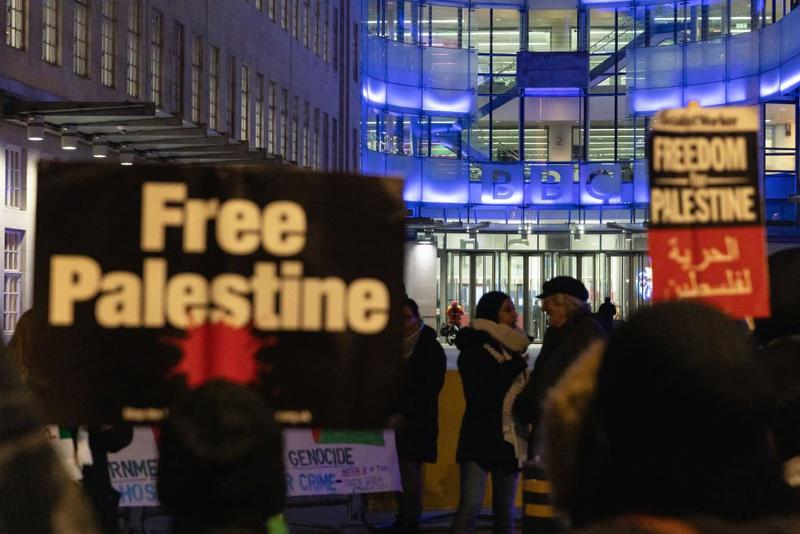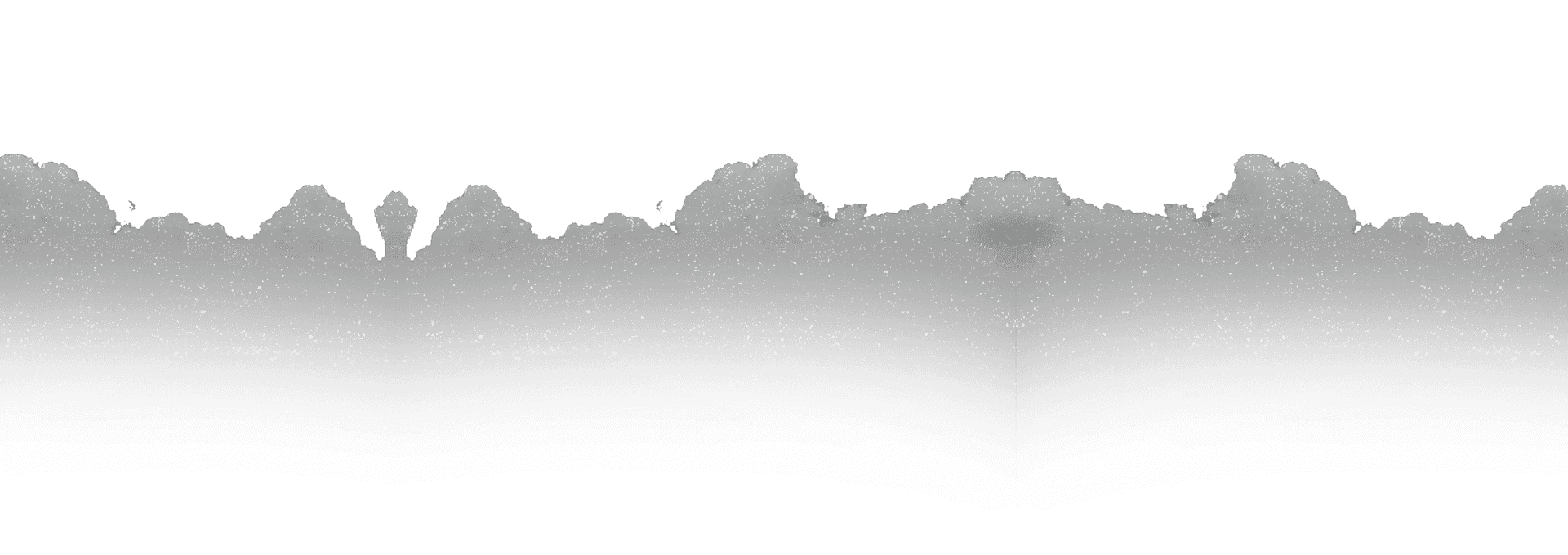Is the BBC’s coverage of Israel’s war on Gaza fair? That’s the question many are asking this week, after a new investigation detailed the alleged despair of 13 anonymous BBC staff members who perceive a pro-Israel bias from the public broadcaster’s most senior ranks.
The 9,000-word report, written by journalist Owen Jones and published on Drop Site, a self-described “non-aligned, investigative news organization dedicated to exposing the crimes of the powerful”, alleges that the BBC’s coverage of the war has failed to meet its standards on impartiality.
Instead, the report says, the BBC’s coverage has involved the systematic dehumanisation of Palestinians and unquestioning acceptance of Israeli PR. This has allegedly been overseen by BBC Middle East Editor and apparent Binyamin Netanyahu admirer, Raffi Berg, who is accused by anonymous journalists of “micromanaging” the section.
The BBC has strongly rejected all allegations made against Berg, saying his role has been “fundamentally misdescribed” and that it stands by his work. It also rejected “any suggestion of a ‘lenient stance” towards Israel or Palestine. The Times has since reported that it understands Berg intends to sue Jones over the report.
A plan by pro-Palestine demonstrators to march outside the BBC’s London headquarters this weekend in protest of its “pro-Israel” coverage of the war on Gaza is under threat from the Metropolitan Police who says it is banned due to proximity to a synagogue. This claim is refuted by the organisers, who point out that the synagogue in question is not on the route, and there has not been a single incident of threat to a synagogue at any of their previous marches.
In October 2023, less than three weeks after Israel began its attack on Gaza, BBC News CEO Deborah Turness claimed that audience feedback on the broadcaster’s coverage of Gaza showed “audiences think the BBC remains the most impartial UK news source”.
As pro-Palestine protesters plan to march on the BBC this weekend – a demonstration that the Metropolitan Police is trying to prevent happening – openDemocracy has spoken to three experts in the media about why they disagree with the BBC’s claims to be impartial. Their answers have been edited for clarity.
‘BBC must be held to account for appalling record on Gaza’
Des Freedman, Professor of Media and Communication Studies at Goldsmiths, University of London
There are serious tensions inside the BBC over the corporation’s coverage of Gaza and, in particular, the idea that it has reported “impartially”.
“Impartiality” ignores the fact that we live in a highly unequal world, not least when it comes to military conflict and occupation. Giving equal weight to “both sides of an argument” often involves a misleading starting point. In this particular case, the default position is usually in relation to Israel’s right to defend itself as opposed to the rights of Palestinians to resist occupation.
How can the BBC justify being “impartial” – or even silent – on genocide, given that its previous director general had insisted that it wouldn’t be appropriate to take that position on racism? Or has the BBC decided that genocide is simply a matter of opinion? Why, at the very least, hasn’t it devoted additional resources to investigating genocidal language and acts by Israeli officials as is their public service duty?
It’s also the case that “due impartiality” fails to deal with questions that BBC editors decide not to place on the news agenda. Issues deemed to be too controversial even to be made visible are simply not covered. For example, the BBC has failed to report on the training of Israeli soldiers in the UK or the scale of RAF surveillance flights over Gaza on behalf of Israel.
The BBC needs to be held to account for its appalling record on Gaza. Broadcasting House is therefore an entirely suitable place to start a protest in solidarity with the people of Gaza.
‘Shifting the coverage to favour Israel’
Dina Matar, Professor of Political Communication and Arab Media and Chair of Centre for Palestine Studies at SOAS, University of London
The BBC’s commitment to impartiality has been one of the defining features of its raison d’etre, if you wish, and its image as a credible and legitimate purveyor of the truth. But Israel’s genocidal war against Gaza has exposed the inherent contradictions in what some scholars have termed the ‘impartiality-as-balance’ paradigm. These contradictions existed before the war, particularly in the reporting of conflictual issues in the UK political landscape. However, they have become more pronounced due to the BBC’s asymmetrical coverage of the war and its apparent reluctance to name Israel directly and immediately as the source of violence.
Academic research has consistently documented the asymmetrical coverage of Israel/Palestine since 1948 and not only in relation to the war that began in 2023. Other organisations, including the Centre for Media Monitoring, have noted that news coverage of Palestinian deaths across mainstream British media (including the BBC) tends to use ‘passive language, which omits the perpetrator (Israel) and the action (shot, bombed, killed)’, in contrast to the far more ‘emotive’ language used when covering the deaths of Israelis.
While the alleged internal disputes over editorial policies and language biases have now become public through revelations by former BBC employees and insiders, what is less discussed is the BBC’s relationship with elite Israeli sources and the role Israeli propaganda plays in shifting the coverage to favour Israel’s strategic views.
The relationship narrows the range of views and information on the war, and ultimately undermines the BBC’s ability to act as a reliable and independent check on power, and, in this case, uncovering and reporting accurately Israel’s genocidal intentions and practices.
‘Imbalances seem to be consistent feature of BBC reporting’
Mike Berry, Director of the MA in Political Communication at Cardiff University’s School of Journalism, Media and Culture
The great bulk of academic research on British and American reporting of the conflict finds that Israeli perspectives are featured much more prominently than those of the Palestinians.
For instance, a 2004 major study (which I co-authored) of BBC prime time reporting of the second intifada spanning from 2000 to 2005, produced four key findings.
First, that BBC News had said almost nothing about the history or origins of the conflict. This disadvantaged the Palestinians by removing their rationale for action; to regain lands and homes lost when Israel was created in 1948 and thrown off the military occupation they have been living under since 1967.
As a senior BBC correspondent interviewed for the study commented, what was missing was the view that the Palestinians saw themselves as engaged in a decades-long struggle of national liberation ‘in which a population is trying to throw off an occupying force’.
Second, there was little reporting of what the military occupation involved for Palestinians such as theft of land and water, restrictions on movement and being subject to detention without trial and torture. Third, Israelis were given more airtime than Palestinians and journalists frequently inserted their rationales and perspectives into coverage. Fourth, Israeli casualties received more airtime than Palestinian victims and their deaths were described using different language like ‘atrocity’, ‘murder’ and ‘barbarically killed’.
In 2006, shortly after this study was published, research commissioned by the BBC’s Board of Governors and carried out by Loughborough University confirmed many of its key findings. In addition, the BBC’s independent panel report highlighted the corporation’s “failure to convey adequately the disparity in the Israeli and Palestinian experience, reflecting the fact that one side is in control and the other lives under occupation” and stressed the BBC’s need “to fill in the gaps, most obviously in respect of context and history”.
Despite this, emerging research on BBC reporting since 7 October 2023 has produced similar findings, such as a lack of historical context, and differential use of language in relation to Palestinian and Israeli victims. Imbalances in coverage appear to be a long and consistent feature of BBC reporting.
Image: Pro-Palestine protest outside BBC Broadcasting House in London | Mark Kerrison/In Pictures via Getty Images



